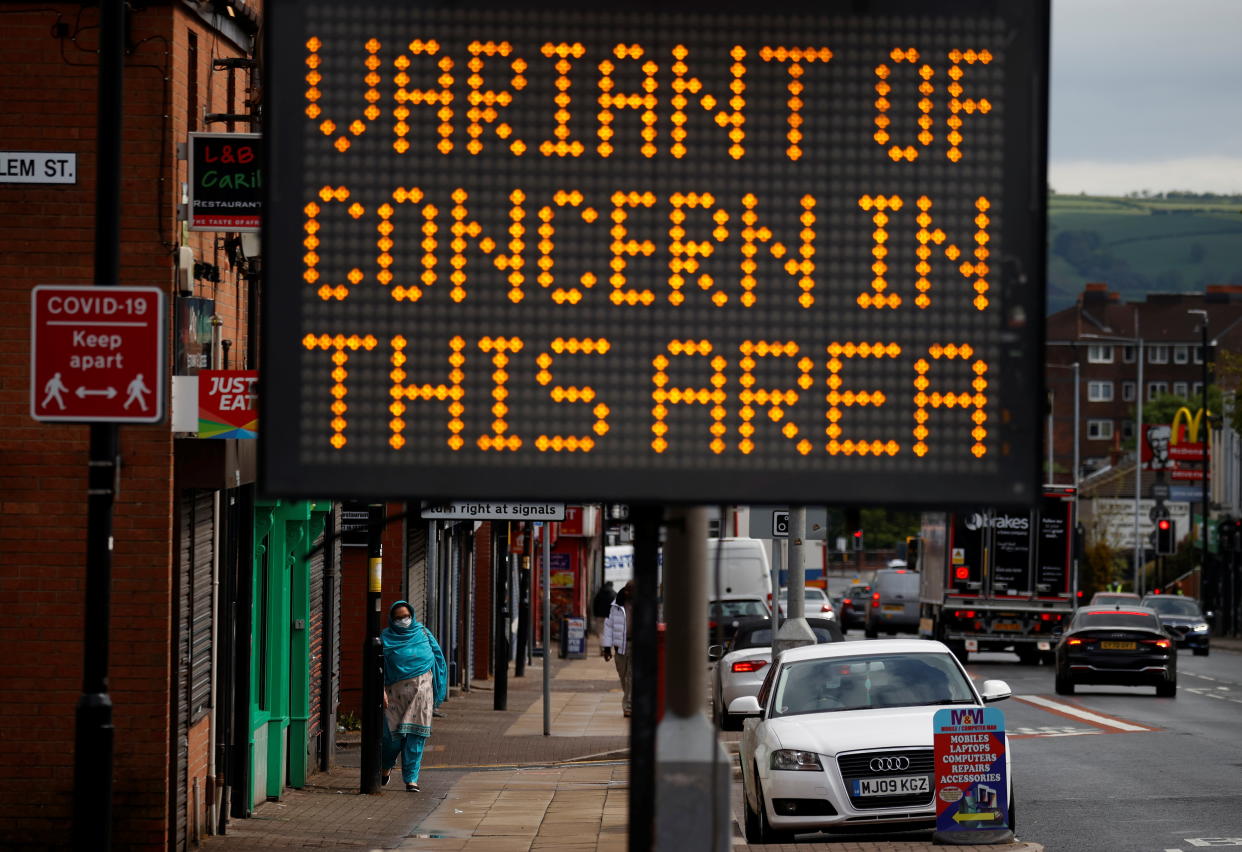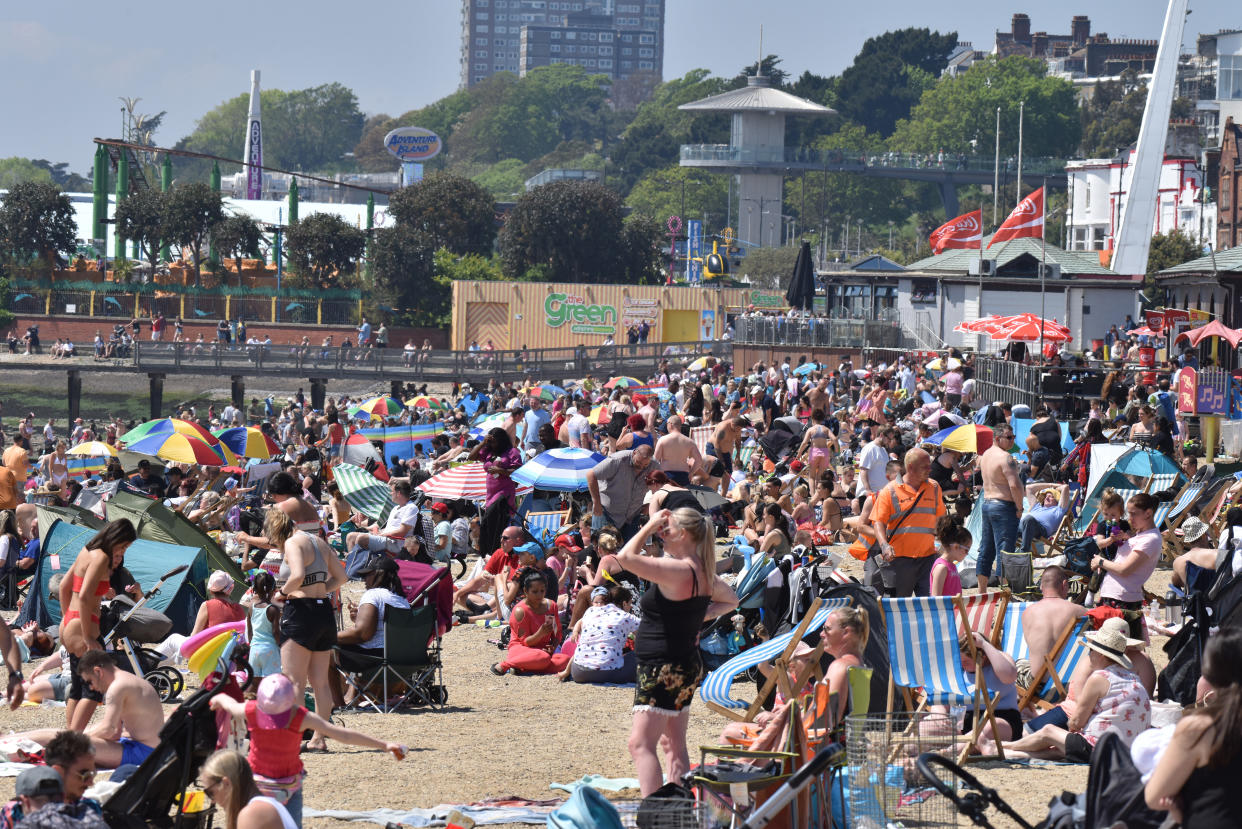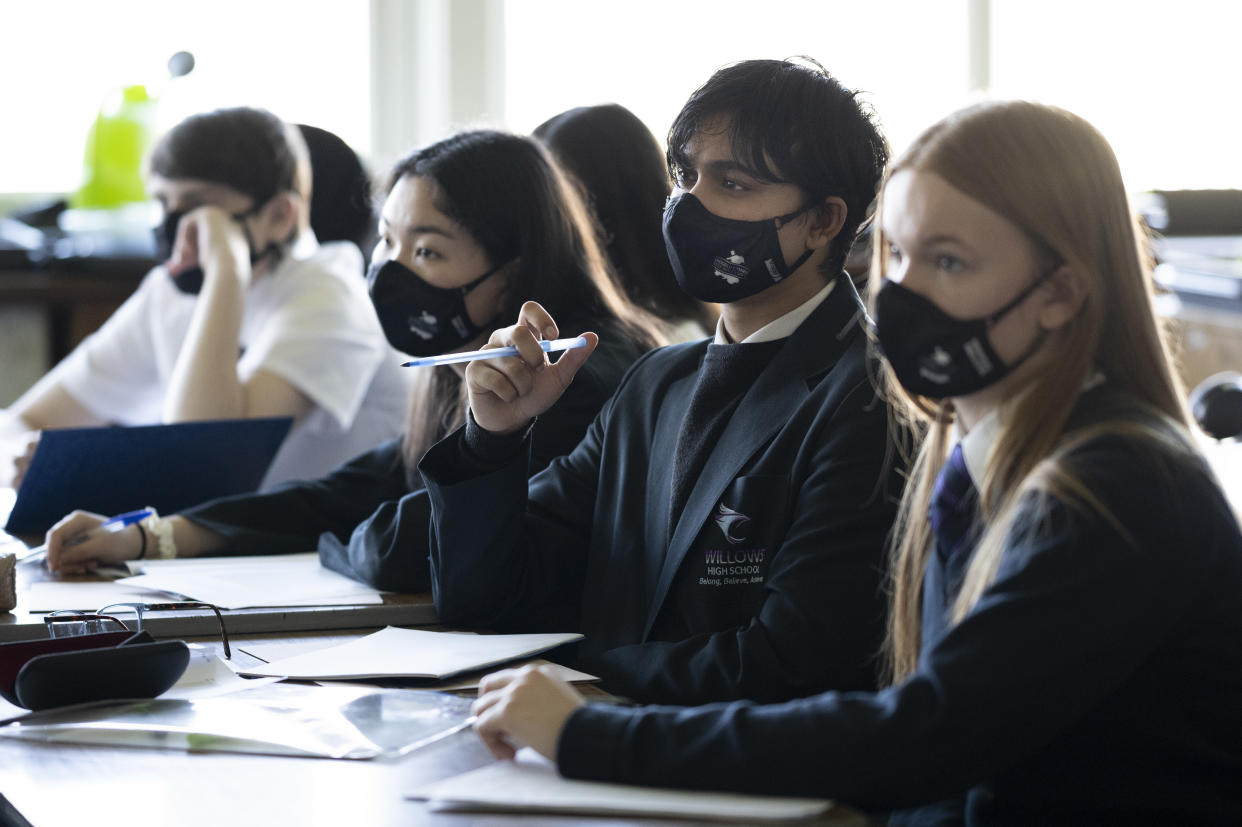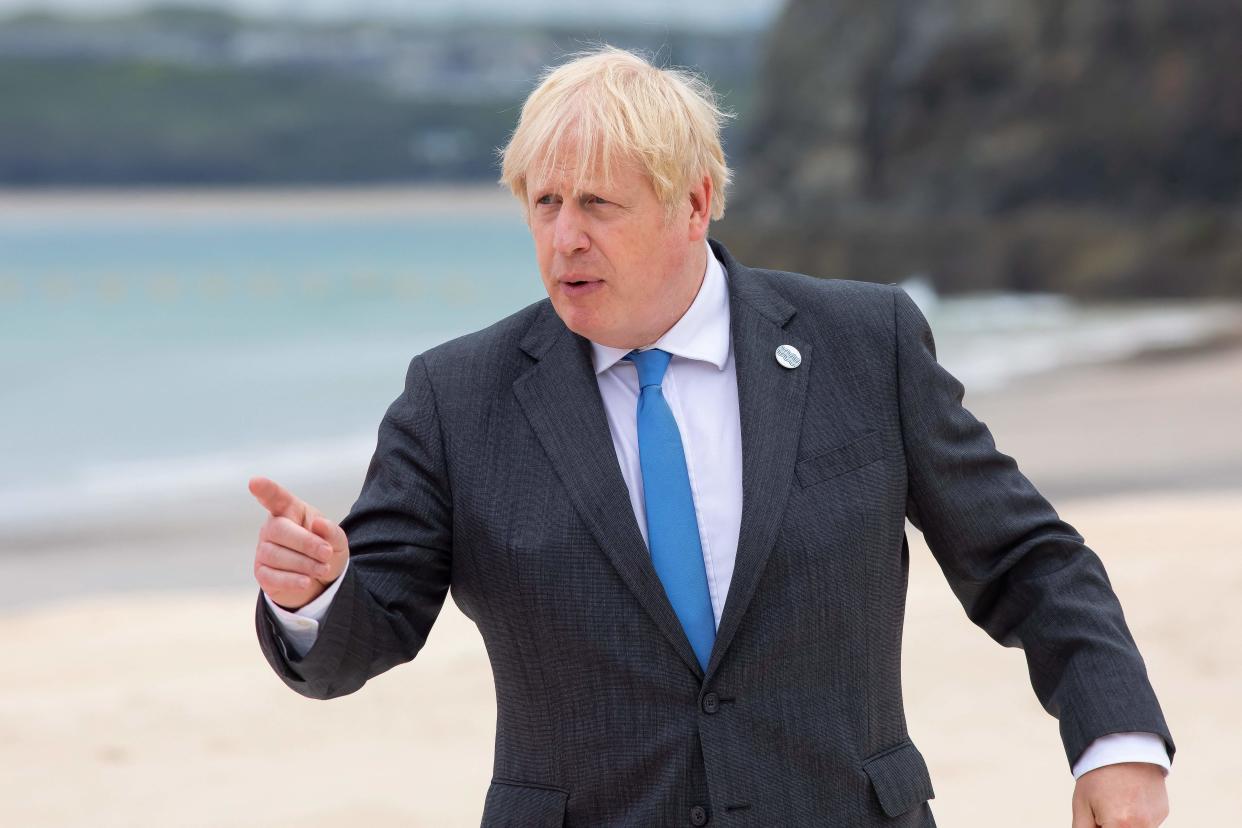5 things we learned about the Indian variant today

It has been another day of major coronavirus news as the Delta variant of coronavirus, first discovered in India, continues to spread across the UK.
Here is Yahoo News UK’s round-up of five important things we learned about the variant on Friday.
Cases more than tripled in week
Public Health England (PHE) said that as of Wednesday, the UK has seen 42,323 confirmed cases of the B.1.617.2 variant, up 29,892 from 12,431 a week ago, an increase of 240%.
Growth rates for Delta cases are high across all parts of the country, with regional estimates for doubling time ranging from four and a half to 11 1/2 days. The increase in confirmed cases has been driven partly by a reduction in test turnaround times and a faster process for identifying cases of the variant.
60% more transmissible
PHE estimates that the strain is 60% more transmissible compared with the previously dominant Alpha - or Kent variant.
The Alpha variant caused the UK's winter crisis of infections, hospital admissions and deaths. Researchers said it is "encouraging" that the huge increase in Delta variant case numbers has not yet translated into a similar increase in hospitalisations.
Delta now makes up up to 96% of new cases in England.

12 people have died from the Delta variant after having two COVID vaccinations
As of 7 June, there had been 42 deaths of people who had tested positive with the Delta variant. Of these, 12 were more than 14 days after their second dose.
Of 383 people admitted to hospital with the Delta variant, 251 were unvaccinated, 66 were more than 21 days after their first dose and 42 were more than 14 days after their second dose.
Of the 1,234 people who attended A&E in England between 1 February and 7 June who were confirmed as having the Delta variant, 67% were unvaccinated, 18% were more than 21 days after their first dose, and 83 7% were more than 14 days after their second dose.
Dr Jenny Harries, chief executive of the UK Health Security Agency, said: "Vaccination is our best defence. If you are eligible, we urge you to come forward and be vaccinated. Remember that two doses provide significantly more protection than a single dose."

Outbreaks in schools
A PHE technical briefing has confirmed there have been 217 outbreaks of the Delta variant in educational settings.
An estimated 1.8% of England’s state school pupils did not attend school on 27 May – the highest figure across the summer term to date, according to government figures.
This was even higher in some known hotspots of the variant, with one third of pupils in Bolton absent due to catching COVID or possible contact with the virus.
“It was very worrying, though not unexpected, that there was an increase in COVID-related pupil absence in the week before the half term holiday,” Geoff Barton from the Association for School and College Leaders (ASCL) said.
Read more: What you can and can't do under current lockdown rules

“We are clearly now seeing the impact of the Delta variant feeding through into these statistics, and this is reflected by the fact that absence is highest in areas that have been worst affected by the variant.”
Dr Zubaida Haque, a member of the Independent SAGE advisory body, Tweeted on Friday: "Matt Hancock recently admitted that 'a huge proportion of the latest cases are in children' and there is higher transmissibility among children, yet the govt have made NO ATTEMPT to make schools more COVID secure."
"Why haven't they reintroduced facemasks in secondary schools?," she asked.
Lockdown easing is in doubt
The government is said to be weighing up a delay of up to four weeks beyond the 21 June timeline set for the final stage of lifting lockdown restrictions.
The delay would be to enable all over-50s to be fully vaccinated with both doses of a vaccine, and also to allow sufficient time for the jabs to take effect.
The Times quoted a Cabinet source as saying that a delay of “between two weeks and a month” is to be expected and another said that a delay made more sense than a partial lifting of lockdown restrictions to avoid any “confusion” in messaging.
The All-Party Parliamentary Group (APPG) on Coronavirus chairwoman Layla Moran said on Friday the latest figures should “set alarm bells ringing in Government”.
The Lib Dem MP said: “The government must immediately explain to the public whether this exponential growth suggests the country is in line for a severe third wave, and if so what it is doing to prevent this.”

Boris Johnson has so far refused to be drawn on whether there will be a delay to the proposed lifting of lockdown.
He said: "The reason we’ve been doing the steps on the road map with five-week intervals is really to give us time to look at all the data as it comes in, and to assess the state of the pandemic before we go forward to the next step.
“So on Monday that four-week period will be up and we’ll have a look at where we are.
“And so that’s what we’ll be looking at. And there are arguments being made one way or the other.
“But that will be driven by the data. We’ll be looking at that. And we’ll be, as I say, we’ll be sending it out on Monday.”
Watch: UK announces to donate 100 million surplus vaccine to world



